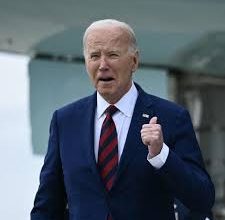Euro at 7-month low against dollar on ECB talk

Tokyo – The euro hit a seven-month low against the dollar Tuesday after a key European Central Bank (ECB) official reinforced expectations for further monetary easing while a pick-up in confidence gave support to emerging market currencies
Trading focus Monday was dominated in Asia by the terror attacks in Paris, which fuelled a flight to safety – hitting higher-yielding units – as investors worried about their possible impact on the already fragile global economy.
But nerves calmed through the day and a little more risk aversion returned in Europe and New York.
However, the European single currency was unable to bounce back from its Monday funk, and continued its descent.
The selling came after ECB Executive Board member Peter Praet said in a Bloomberg interview the bank was mulling fresh stimulus to add to its already vast bond-buying programme aimed at kickstarting growth and inflation.
“It’s key for a central bank to keep inflation expectations anchored, especially in a period of slack in the economy, and we have some signals that these inflation expectations are still fragile,” he said in Frankfurt Monday.
“There are risks and this is why we’re considering further action.”
ECB chief Mario Draghi last month hinted at a widening of the programme in December, which – combined with expectations of a US interest rate hike before 2016 – has pushed the euro to multi-month lows.
On Tuesday the single currency fell to $1.0665 – after touching its lowest level since April at $1.0656 – from $1.0687 Monday in New York. It was also down at ¥131.31 from ¥131.64.
The greenback was also up against the yen, lifted by expectations the Federal Reserve will begin to hike interest rates next month. In afternoon trade it bought ¥123.40 from ¥123.18.
However, it retreated against higher-yielding emerging currencies on revived risk-buying interest.
The South Korean won, Indonesia’s rupiah and the Malaysian ringgit ticked higher, in line with a broad rally across regional stock and oil markets following big gains on Wall Street.
“Risk appetite has returned and currencies in emerging markets are regaining ground,” Nizam Idris, head of foreign exchange and fixed-income strategy at Macquarie Bank in Singapore, told Bloomberg News.
“The recovery in Brent (crude) as well as US and European stocks also helped sentiment.”
The won added 0.31% against the greenback, while the ringgit edged up 0.04%. The Taiwan dollar added 0.31% and the rupiah tacked on 0.11%.




